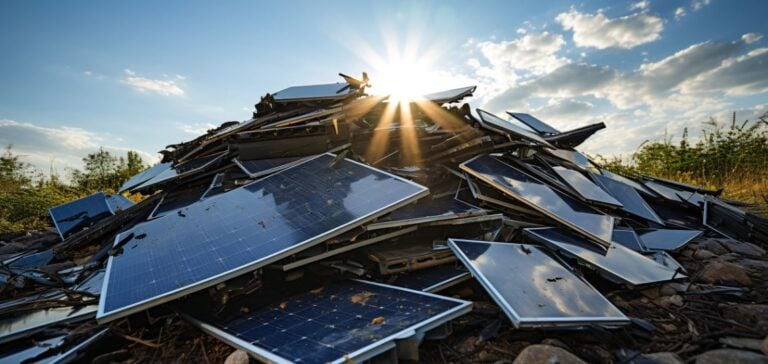Canadian Solar announces a partnership with SOLARCYCLE, a solar panel recycling specialist, to offer its US customers integrated recycling solutions.
This collaboration aims to strengthen the management of end-of-life solar panels by recovering key materials such as silicon, copper and aluminum.
This business model is integrated into the supply chain of solar projects, reducing waste management costs while maximizing resource recovery.
SOLARCYCLE thus becomes Canadian Solar’s main recycling partner, offering a solution for processing end-of-life solar materials.
By opting for this collaboration, Canadian Solar is able to offer its customers an additional service right from the purchase stage, which promotes efficient planning of solar projects while meeting the growing sustainability standards imposed by regulators and investor expectations.
Integrating recycling into the sales process
The integration of recycling services into the solar panel sales process marks an evolution in the way manufacturers manage the end-of-life of their products.
Rather than simply selling panels, Canadian Solar is integrating a recycling offer with SOLARCYCLE, aimed at minimizing the waste of resources and optimizing the yield of the materials used.
This approach responds to growing demand for solutions that effectively manage the end-of-life of solar installations, particularly in a context of rising raw material costs.
This partnership also illustrates a business model that could be adopted more widely by other players in the solar sector, where recycling and reusing materials become strategic elements in the value chain.
It could also reduce dependence on imported materials, thereby supporting the domestic supply chain.
Resource management and cost reduction
Efficient resource management through end-of-life panel recycling offers clear economic benefits.
By extracting and reusing materials such as silver and copper, companies can reduce the need to purchase new raw materials and mitigate fluctuations in market prices for materials.
For players in the solar industry, this approach not only meets sustainability expectations, but also secures a source of materials while limiting the costs associated with sourcing them.
For Canadian Solar, integrating recycling into its sales strategy is a pragmatic response to the growing demands of American regulations concerning industrial waste management and compliance with environmental standards.
It also diversifies the services offered to customers, while providing a competitive edge in the market in terms of cost management and meeting regulatory requirements.
A scalable model for the solar industry
What sets this partnership model apart is its ability to offer recycling solutions preventively, rather than reacting to end-of-life management issues.
By adopting a more integrated approach, Canadian Solar and SOLARCYCLE anticipate the logistical and environmental challenges of managing solar panel waste, while reducing the associated risks and costs for project developers and asset owners.
In a rapidly expanding sector, the ability to effectively manage end-of-life solar panels is becoming a strategic differentiator.
By integrating recycling services into their offering, companies like Canadian Solar not only optimize their value chain, but also strengthen their position in an increasingly competitive market.






















